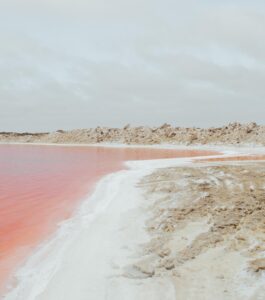HAPPY HEALING
All about health and wellbeing
All about health and wellbeing

Himalayan salt is sold for fairly high prices and that must be better than the cheaper Celtic sea salt, right? Apparently not, because we see that Himalayan salt contains more sodium, which can increase blood pressure. At the same time, we see that Celtic sea salt (also called Sel Gris) contains more than twice as much magnesium, which in turn lowers blood pressure.
Take a very small crystal flake of Celtic sea salt on your tongue before you drink your glass of water. This will hydrate the cells.
Celtic sea salt is is unrefined. It is hand harvest extracted from the Celtic Sea near Brittany (France), and the salt is extracted by evaporation.
It contains 82 minerals and trace elements, of which mainly magnesium, and less: calcium, potassium, sodium, iron, phosphorus, selenium, iodine and other minerals. Compairing to Himalayan salt has about 75 minerals. But the benefits of Celtic sea salt is that is has 3 magnesiums: magnesium chloride, magnesium bromide and magnesium sulphate.
I do not recommend to use ordinary table salt in all cases, because it has undergone chemical processes and hardly contains any nutritional values anymore. It is also saltier in taste.

Magnesium and other essential minerals
Celtic sea salt also contains approximately twice as much magnesium and calcium than table salt. But, without vitamin D, the calcium cannot be absorbed by the cells; and at the same time it is the calcium what provides the minerals that are absorbed by the cells.
High blood pressure can result from dehydration. Vitamin D is said to have a positive effect on lowering blood pressure. In addition to vitamin D, magnesium also helps to lower blood pressure. The magnesium is taken to the cell membrane and you drink your water and that magnesium pulls that water inside the cell; it’s the quickest way to hydrate a body. It just needs this minerals in the Celtic salt.
Magnesium is a mineral that is necessary for the formation of bones and muscles, but also plays a major role in the transmission of nerve impulses and the proper functioning of the muscles.
Magnesium is present in relatively large quantities in Celtic sea salt. At least 50% of the population has a magnesium deficiency. Anyone who has a magnesium deficiency will quickly notice this. Symptoms of magnesium deficiency include general lethargy or fatigue and muscle cramps.
Calcium and Magnesium metabolism are closely related. Calcium works outside of the cells, exciting the body and plays a role in blood clotting, bone health and muscle contraction. Magnesium, on the other hand, works inside the cells, calming the body and plays a role in blood flow, soft tissue health and muscle relaxation.
The benefits of Celtic Sea salt:
– It tastes incredibly good in your food
– It helps regulate fluid levels in the body
– It promotes digestion
– It is a good source of iodine, sodium and potassium
– It contains 80+ different minerals
– It is often cheaper than other types of salt
– It helps against muscle pain and muscle cramps
– It supports your immune system
– Helps with deeper and longer sleep
Symptoms of magnesium deficiency
Typical complaints due to magnesium deficiency:
Magnesium chloride
The Magnesium Chloride as a liquid, for oral intake in drop form, or to spray on the skin. The skin spray is an iron-containing Magnesium ‘oil’, extracted from a source where the sea crystals are mixed with water, and emerges above the ground as a kind of brine. Good to use against muscle pains or, for example, a stiff neck.
The Magnesium Chloride also exists as salt crystals for a foot bath. A wonderful boost intake for an optimal magnesium balance and a better night’s sleep.
By the way, the plants love the water used after the foot bath!
Can I Get Too Much Magnesium?
The European advice when using supplements is not to take more than approximately 250 mg of extra magnesium per day. An excess of Magnesium (such as an excess of Vitamin C) could result in diarrhea. If in doubt, always consult a doctor.